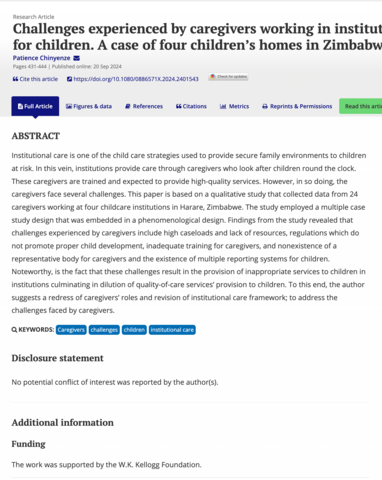Institutional care is one of the child care strategies used to provide secure family environments to children at risk. In this vein, institutions provide care through caregivers who look after children round the clock. These caregivers are trained and expected to provide high-quality services. However, in so doing, the caregivers face several challenges.
This paper is based on a qualitative study that collected data from 24 caregivers working at four childcare institutions in Harare, Zimbabwe. The study employed a multiple case study design that was embedded in a phenomenological design. Findings from the study revealed that challenges experienced by caregivers include high caseloads and lack of resources, regulations which do not promote proper child development, inadequate training for caregivers, and nonexistence of a representative body for caregivers and the existence of multiple reporting systems for children.
These challenges often result in the provision of inappropriate services to children in institutions culminating in dilution of quality-of-care services’ provision to children. To this end, the author suggests a redress of caregivers’ roles and revision of institutional care framework; to address the challenges faced by caregivers.

